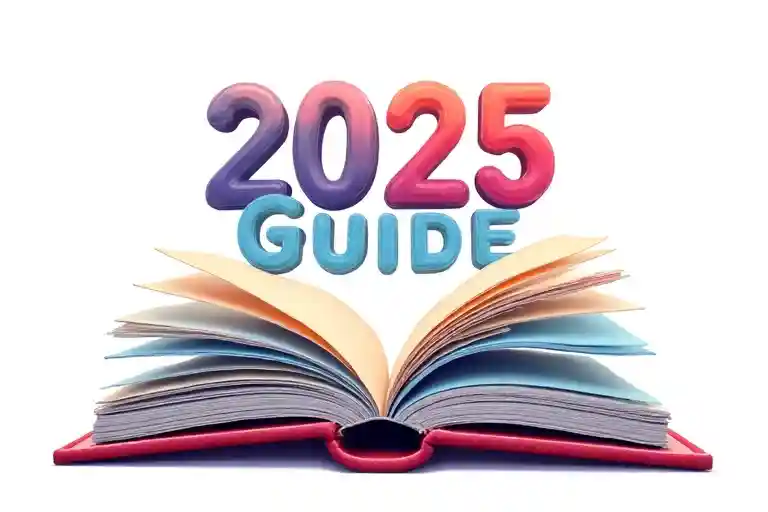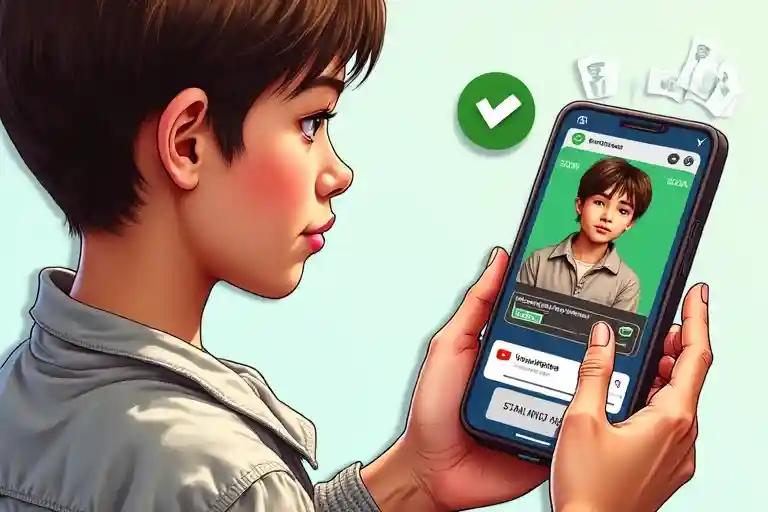Okay, let’s get real for a second. You have this *amazing* idea for a blog. Maybe it’s for your fan theories about the latest Marvel movie, your insane collection of squishmallows, or maybe you just want a space online that’s totally, 100% *yours*. But then you hit a wall. You search online and are bombarded with a million options: WordPress, Wix, Squarespace, Ghost… it’s enough to make you want to just, like, give up and scroll TikTok for three hours. But wait a moment! Guess what happened? I was in the exact same spot, feeling totally overwhelmed. But I pushed through, and what I found was shocking—it’s actually *not* that hard. So, if you’ve ever wondered what is the easiest blog platform to use, you’re in the right place. We’re about to break it all down, no confusing tech talk, I promise. We’ll look at the absolute best free options, which ones are great for beginners, and even touch on how you could potentially make a little cash. This is your ultimate guide to going from blog-zero to blog-hero, right now.
Before we dive in, know that starting a blog is one of the coolest things you can do. It’s your personal corner of the internet. Think of it as building your own digital clubhouse. And the best part? You don’t need to be a coding genius or have a ton of money. Many of these platforms are designed for people just like you. I’ll share some stories from teens who have done it, the platforms they used, and the real-deal pros and cons of each. Ready to find your perfect match? Let’s go!
What is the easiest blog platform to use for beginners?
When you’re a beginner, “smooth” approach a few matters: a amazing-speedy setup, a drag-and-drop editor (or at least one that feels intuitive), and no longer wanting to name your tech-savvy uncle for assist every five mins. You want to attention on writing and creating, no longer fighting with your internet site. Honestly, for natural, useless-easy, get-commenced-in-10-minutes ease, it’s a decent race. The secret is finding a platform wherein you can sign on, pick out a name, pick out a easy subject, and begin writing your first post nearly at once. This is where you need to observe systems that handle all the technical stuff—the website hosting, the security, the updates—for you.
I have a friend, Chloe, who wanted to start a blog about sustainable fashion finds from thrift stores. She knew *nothing* about websites. She just wanted to post her cool outfits and write about them. She ended up going with a platform that let her do just that without any drama. The whole thing was live in less than an hour! That’s the kind of easy we’re talking about. You don’t want to get bogged down in details about “hosting packages” or “domain registrars” just yet. You want to blog. The easiest free blog platforms are built specifically for this purpose: to remove the friction and get your voice out there. They are your launchpad, not your final destination, and that’s perfectly okay!
Simplicity is Key
The “it simply works” feeling is what you are chasing. Imagine downloading a brand new app in your phone. You don’t examine a 50-page guide, right? You just tap around and figure it out. That’s the gold trendy for an clean running a blog platform. You ought to be capable of trade colorings, upload a header photograph, and create a brand new post without having to Google an instructional for every single step. Look for visible editors wherein what you spot is what you get (frequently referred to as WYSIWYG editors). This approach you’re modifying the web page precisely as your readers will see it, which takes out all of the guesswork.
Don’t Overthink It
Seriously, the biggest mistake beginners make is spending weeks trying to pick the “perfect” platform. Here’s a little secret: there is no perfect platform! There’s only the platform that’s perfect for you *right now*. You can always switch later if you need more features. The goal today is to start. Pick one that feels good, and run with it. The most important part of blogging is the *blogging* part, not the platform itself. Your awesome content is what will make people stick around.

Best free blogging platform
Let’s talk about everyone’s favorite price: FREE. Starting a blog shouldn’t cost you your allowance. Luckily, there are some amazing platforms that let you get started without spending a dime. The big trade-off with free platforms is usually that your blog’s address will have the platform’s name in it (like `yourcoolblog.blogspot.com` or `yourcoolblog.wordpress.com`) and they might place their own ads on your site. But for a first blog? That’s a totally fair deal. You get a functional, reliable space to build your audience from the ground up.
Think about it like this: it’s the difference between renting an apartment and owning a house. With a free platform, you’re renting. The landlord (the platform) takes care of maintenance, but you have to follow their rules and you can’t knock down walls. It’s a fantastic, low-risk way to see if you even *like* blogging before you commit to anything more serious. And trust me, some of the best free blogging platforms are incredibly powerful and have been the starting point for massive internet careers.
What You Get (and What You Don’t)
With a free platform, you typically get everything you *need*: a space to write and publish posts, basic customization options (themes, colors, fonts), and a reliable place for your content to live online. What you usually *don’t* get is a custom domain name (like `yourcoolblog.com`), advanced design tools, the ability to install plugins for extra features, or full control over monetization. But again, for a teen just starting out, this is often more than enough. You can focus purely on creating great content and building a community around your passion.
Blogger
If you’re looking for the OG, super-simple, been-around-forever option, say hello to Blogger. It’s owned by Google, which means if you have a Gmail account, you basically already have a Blogger account. The setup process is ridiculously easy. You can literally go from zero to a published blog post in under 15 minutes. It’s not the flashiest platform on the block, but it is reliable, 100% free, and incredibly straightforward. It’s like the trusty old bike in the garage—it might not have all the fancy gears, but it will absolutely get you where you need to go.
Blogger is a fantastic choice if your main goal is just to write. The interface is clean and focused. There aren’t a million menus and options to distract you. You log in, you click “New Post,” and you start typing. It’s also integrated with Google’s ecosystem, so adding things like Google AdSense (with a parent’s help!) later on is relatively seamless if you decide to try and earn a little money. For a personal journal, a class project, or a low-key hobby blog, Blogger is a solid, no-fuss contender.
WordPress blog
Okay, here’s where things get a *little* more complex, but also way more exciting. When people talk about a “WordPress blog,” they could mean one of two things, and it’s SUPER important to know the difference. Think of it like the difference between a video game console and a custom-built PC.

WordPress.com: The Easy Route
This is the console. It’s the beginner-friendly, all-in-one platform. Much like Blogger, you can get started for free, and they handle all the technical stuff for you. The free plan is great, though it comes with the `wordpress.com` in your URL and their ads. However, WordPress.com offers paid plans that grow with you, allowing you to get a custom domain and more features as you need them. It’s a fantastic middle-ground that balances ease of use with powerful potential. This is often the answer when someone asks which is the best free blog platform for flexibility.
WordPress.org: The Power User Route
This is the custom-built PC. It’s the software that the pros use. WordPress.org is free, open-source software that you download and install on your own web hosting account (which you have to pay for). This gives you UNLIMITED power. You can install any theme, any plugin, and customize every single pixel of your site. It’s the platform that runs a huge portion of the internet for a reason. But—and this is a big but—it comes with a steeper learning curve. You’re responsible for your own security, backups, and updates. For a 14-year-old just starting? It’s probably overkill unless you’re *really* into tech and want a project. For most teens, starting with WordPress.com is the smarter move.
What is the easiest blog platform to use reddit
If you dive into Reddit threads asking “what is the easiest blog platform to use,” you’ll see a million different opinions, and honestly, it can get chaotic. It’s like the digital version of the “Is pineapple on pizza good?” debate. Some Redditors are hardcore WordPress.org loyalists who will tell you anything else is a waste of time. Others will champion super-niche platforms. But if you read between the lines, a pattern emerges. For true beginners, the consensus usually leans towards platforms that require zero technical knowledge.
The general Reddit vibe is this: if you want to just write and not worry about *anything* else, go with something like Blogger or a free WordPress.com site. If you have even a slight ambition to grow your blog into something bigger or maybe a business one day, they’ll advise you to start with a basic paid plan on a platform like WordPress.com or Squarespace so you own your domain name from day one. They see it as an investment in your future self. The best free blogging platform according to Reddit often comes down to your ultimate goal: simplicity now or flexibility later.
Best blogging platform to make money
Ah, the big question! Can your blog actually make money? The short answer is yes, absolutely! The longer answer is… it takes time and strategy. Think of it like a TikTok account. You don’t get a million followers overnight. You post consistently, find your niche, and build a community. The same goes for blogging. Don’t expect to be making bank in your first month. But if you’re patient, it’s totally possible. As for the platform, you want one that gives you control over monetization.
This is where WordPress.org eventually shines brightest. Because you have total freedom, you can run any kind of ads, use any affiliate program, and sell your own products directly. However, platforms like WordPress.com (on their paid plans), Squarespace, and Wix are also excellent choices and are often much easier to manage. They have built-in tools for e-commerce and make it simple to run ads. One of the top external resources, 11 Best Blogging Platforms of 2025 by Forbes, often highlights these platforms for their balance of features and usability.
So, What’s the *Real* Tea? A Platform Smackdown
Alright, let’s put them side-by-side. Forget all the complicated jargon. Here’s a simple breakdown of the top choices for a teen just starting out. Think of this as your cheat sheet for deciding what is the easiest blog platform to use.
| Platform | Best For… | Ease of Use (1-5) | Cost to Start |
|---|---|---|---|
| Blogger | Absolute beginners, personal journals, just writing. | 5/5 (Super Easy) | $0 |
| WordPress.com | Beginners who want to grow later. Great all-rounder. | 4/5 (Very Easy) | $0 (with paid plans available) |
| Wix | Visual people who want a beautiful site with drag-and-drop. | 4/5 (Very Easy) | $0 (with paid plans available) |
| WordPress.org | Serious bloggers, tech-savvy teens, total control. | 2/5 (Has a learning curve) | ~$5-10/month for hosting |
Safety First! Your Online HQ Rules
Before you rush off and create your blog, let’s have a quick but super important chat about safety. This is your corner of the internet, and you need to protect it—and yourself. It’s not scary, it’s just smart! Think of it like locking your front door. First rule of Blog Club: *never* share super personal information. This means your full name, your school, your address, or your phone number. You can use a nickname or just your first name. That’s totally fine!
Second, get your parents or a trusted adult involved. Seriously. Show them the blog you want to start. They can help you read the terms of service (I know, BORING, but important) and make sure you’re setting things up safely. They also need to be involved if you ever decide to monetize with something like Google AdSense, as you usually need to be 18 to sign up for those services. And finally, be a good internet citizen. The comment section is for building community, not tearing people down. Be kind, be respectful, and don’t be afraid to use that block button if someone is being a jerk. Your blog, your rules.
Last updated: June 2025
Conclusion
So, what is the easiest blog platform to use? The real answer is: the one that gets you to stop worrying and start writing. For most teens dipping their toes in the water for the first time, platforms like Blogger or the free version of WordPress.com are incredible starting points. They are simple, free, and let you focus on what really matters—sharing your passion with the world. Don’t get paralyzed by trying to make the perfect choice for the next ten years. Just make a choice for *today*. You can always grow, change, and migrate later on. The most successful bloggers didn’t start with the perfect website; they just started.
Your story, your reviews, your art, your thoughts—they deserve to be shared. Pick a platform from this list, spend 30 minutes setting it up this afternoon, and write your first post. It doesn’t have to be perfect, it just has to be *published*. For more tips, check out some of our other guides, like this one on how to start your blog for free.
Now go for it! And when you launch your blog, come back and drop a link in the comments—we’d love to see it! Why not share this article with a friend on Instagram who’s also been thinking about starting a blog?
Stay Updated!
The online world changes FAST! New platforms pop up and old ones get new features. Bookmark our website and check back for the latest and greatest info on blogging, creating, and making your mark online.
Frequently Asked Questions
1. Which blog site is best for beginners?
For absolute beginners, Blogger is often the best choice due to its extreme simplicity and integration with your Google account. You can be up and running in minutes. WordPress.com is a very close second, offering a bit more flexibility and a clear path to upgrade your site as your skills and audience grow. Both are excellent starting points.
2. What is the best free blog platform?
The best free blog platform depends on your needs. Blogger is fantastic for pure simplicity and ease of use. WordPress.com offers a more robust free plan with more features and customization options. Wix also has a strong free offering, especially if you prefer a visual, drag-and-drop website building experience. All are great choices to start without cost.
3. What is the easiest way to start a blog?
The absolute easiest way is to use a free, hosted platform like Blogger or WordPress.com. Simply sign up for an account, choose a name and a basic theme, and write your first post. This method completely removes any technical hurdles like hosting or domain registration, allowing you to focus 100% on your content from the very first minute.
4. How long does it take to make $1000 per month blogging?
This varies wildly and there’s no magic timeline. For most bloggers, reaching $1000 per month takes consistent effort over a significant period, often 12-24 months or even longer. It depends on your niche, content quality, traffic, and monetization strategy (like ads or affiliate marketing). It’s a marathon, not a sprint, requiring dedication and patience.









